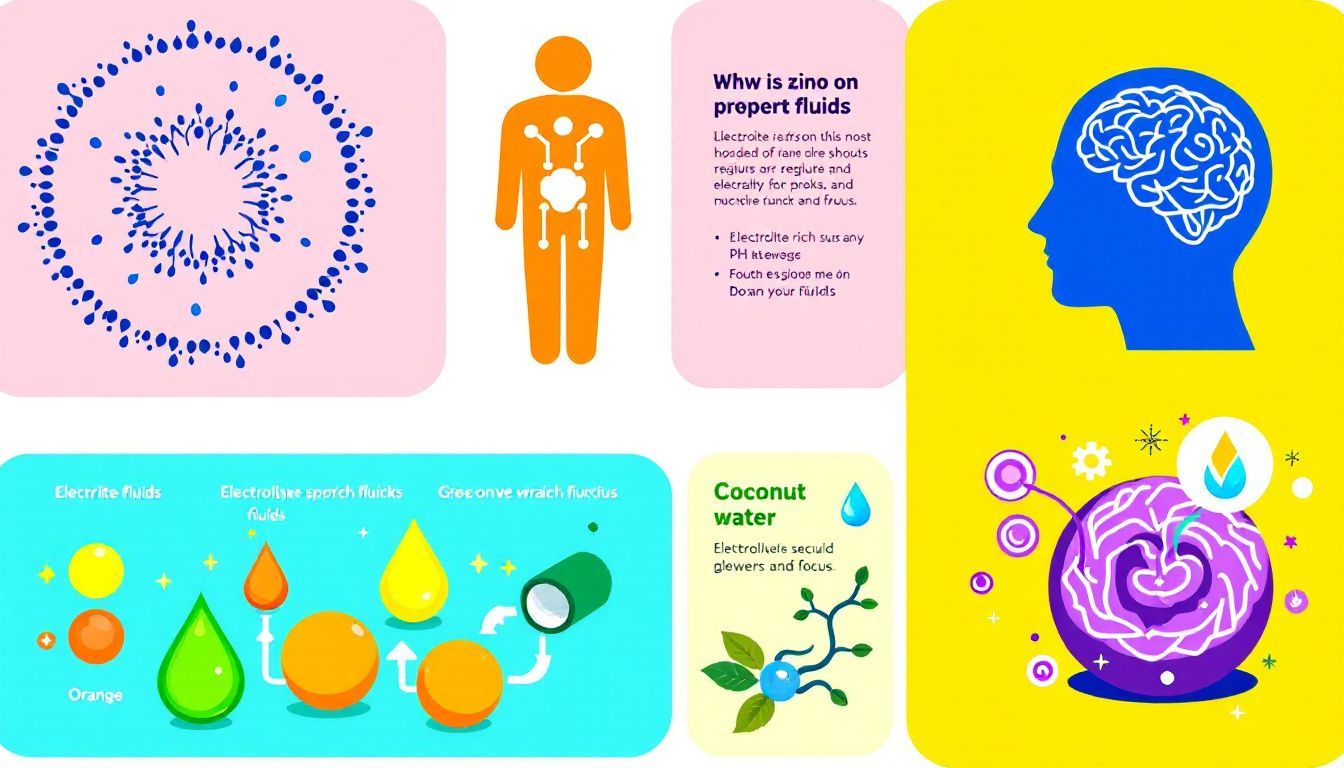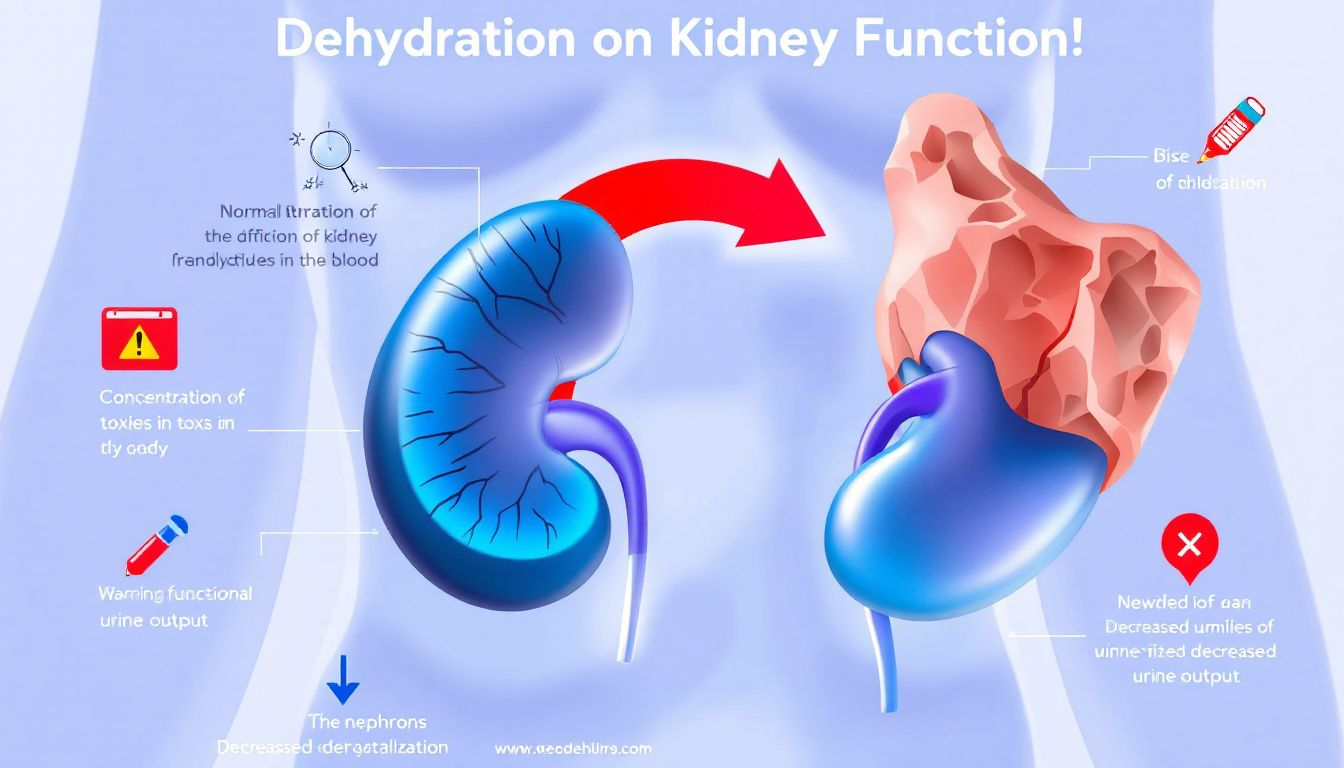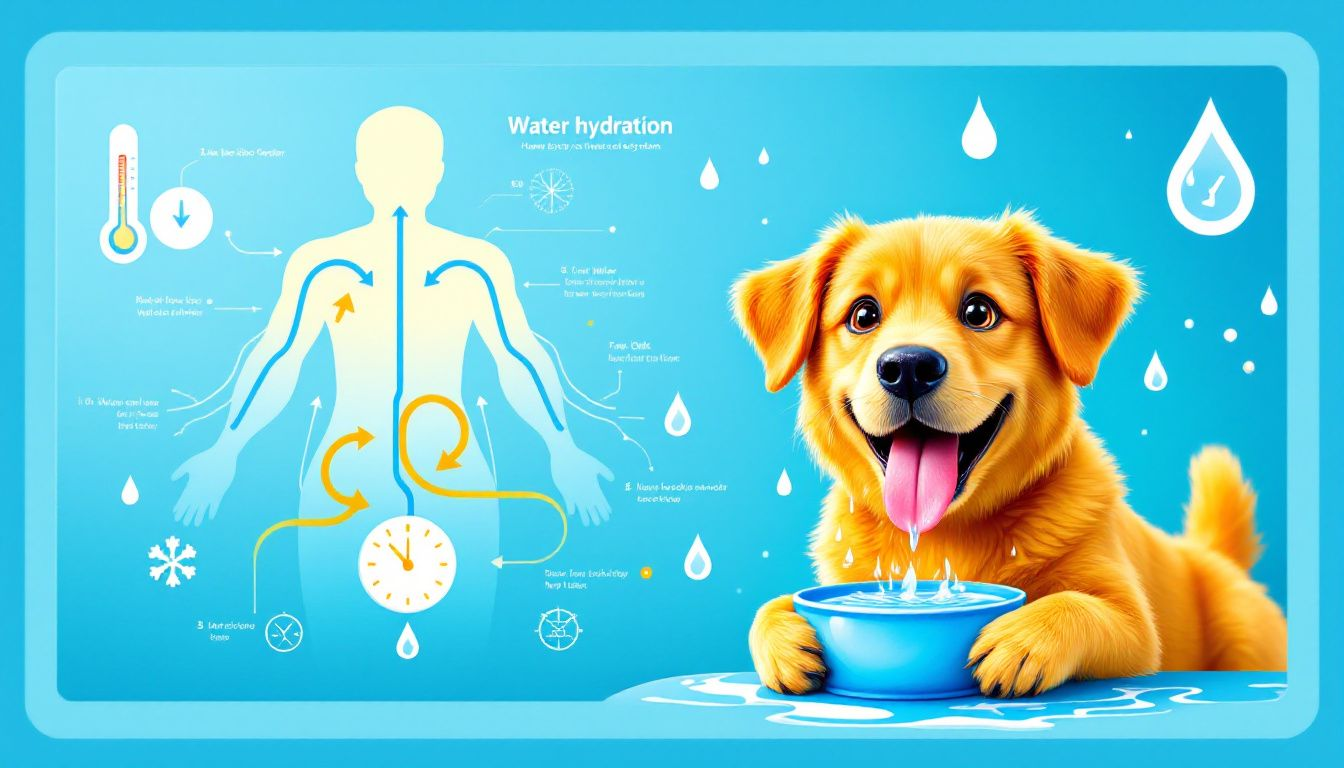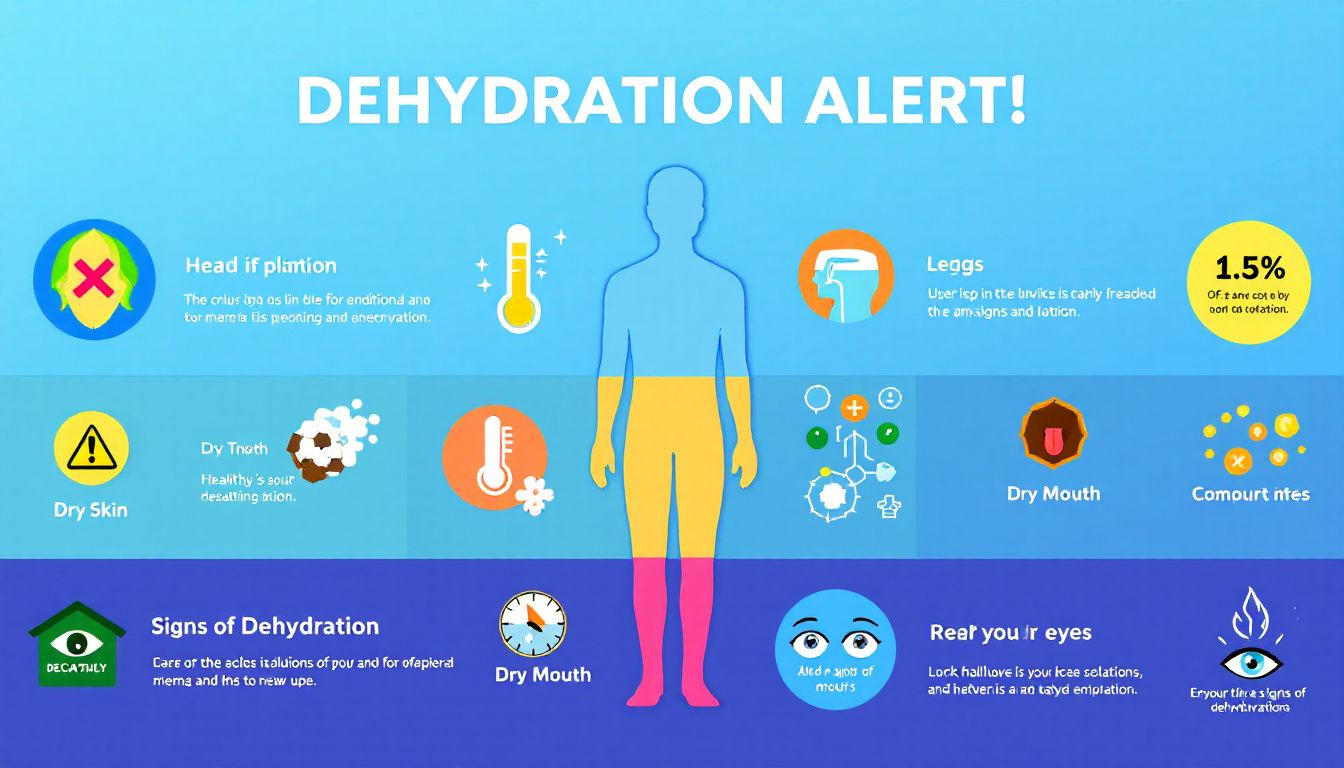Can Dehydration Cause Kidney Failure? What You Must Know

Can Dehydration Cause Kidney Failure? What You Must Know
Yes, dehydration can cause kidney failure in dogs. Severe dehydration affects the kidneys’ ability to function properly, potentially leading to acute kidney injury.
Even mild dehydration over time can result in chronic kidney disease. This article explores how dehydration impacts kidney health, including how dehydration can cause kidney failure, the signs to look out for, and the steps you can take to prevent dehydration in your pets.
Key Takeaways
- Dehydration in dogs can lead to severe health issues, including kidney failure, due to inadequate fluid intake and loss caused by conditions such as heatstroke, vomiting, and diarrhea.
- Early detection of dehydration is critical; symptoms include dry mouth, loss of appetite, and sunken eyes, which can be monitored using simple tests like skin elasticity and the capillary refill test.
-
Preventing dehydration through constant access to clean water and monitoring intake is essential, as chronic dehydration can lead to permanent kidney damage and other serious health complications.
Understanding Dehydration

Dehydration occurs when a dog’s body loses too much fluid and electrolytes than it takes in, leading to serious health issues.
Common causes of dehydration in dogs include:
- Heatstroke
- Vomiting
- Diarrhea
-
Insufficient fluid intake
These issues can quickly deplete the body’s water reserves, making it difficult for the dog to maintain normal bodily functions.
Symptoms of dehydration may include xerostomia (dry mouth), loss of appetite, and potentially collapsing due to shock.
Other signs to watch out for are sunken eyes and dry, sticky gums. As a pet owner, recognizing these symptoms early can be a lifesaver.
To test for dehydration, you can pull lightly on your dog’s skin. If it doesn’t quickly return to its normal position, your dog may be dehydrated.
Another method is the capillary refill test, where you press on your dog’s gums and see how quickly they return to their pink color. Both tests are simple yet effective in identifying dehydration early.
How Dehydration Impacts Kidney Function

The kidneys play a crucial role in filtering waste and maintaining fluid balance in the body. When a dog is dehydrated, these vital organs struggle to perform their duties effectively.
Severe dehydration can exacerbate kidney failure by diminishing blood flow to the kidneys, leading to further complications.
During severe dehydration, the kidneys may suffer damage more quickly, making it critical to address fluid loss promptly.
The risk of permanent kidney damage increases with the severity and duration of dehydration. Therefore, maintaining adequate hydration is essential for long-term kidney health.
Chronic dehydration, even if mild, can lead to kidney failure over time. The kidneys are resilient but not invincible; recurrent dehydration can gradually impair their function and lead to chronic kidney disease.
Ensuring your dog has constant access to clean water can help maintain their kidney health and prevent these severe outcomes.
Acute Kidney Injury and Dehydration
Severe dehydration can lead to acute kidney injury (AKI), a condition characterized by a sudden loss of kidney function.
AKI often occurs due to conditions that reduce blood flow to the kidneys, including dehydration. This reduction in blood flow can cause significant renal dysfunction and, if left untreated, result in permanent kidney damage.
Symptoms of acute kidney injury
Symptoms may include confusion, fatigue, and decreased urine output. Warning signs that need immediate investigation include vomiting or producing little urine. Early recognition and treatment of these symptoms are crucial for recovery.
To address acute kidney injury caused by dehydration, the primary step is to treat the dehydration. This is typically done by administering fluids.
In severe cases, intravenous fluids and sodium are commonly administered at specified rates. If the kidney injury is severe, dialysis may be required to support kidney function. Proper hydration and timely medical intervention can significantly improve outcomes for dogs suffering from AKI.
Chronic Kidney Disease in Dogs
Chronic dehydration results in urine that is more concentrated, which can harm kidney function and lead to diseases like kidney stones and kidney diseases.
Sufficient fluid intake aids the kidneys in eliminating sodium and waste, reducing the risk of chronic kidney disease. Over time, even mild dehydration can cause permanent kidney damage.
Pets with chronic kidney disease are more likely to become dehydrated. Routine veterinary visits are essential for early detection and management of kidney disease in pets. Comprehensive health screenings during these visits can identify early signs of kidney dysfunction.
Veterinarians can develop customized management plans for pets diagnosed with kidney disease, including dietary adjustments and fluid therapy.
Regular follow-up visits allow for ongoing monitoring of kidney function and timely adjustments to treatment plans. These proactive measures can help manage chronic kidney disease and improve the quality of life for affected dogs.
Preventing Dehydration in Dogs

Preventing dehydration in dogs is all about ensuring they have constant access to clean water. Leaving multiple bowls of water around your home can encourage dogs to drink more water.
A general guideline is that dogs need about one ounce of water daily for each pound of their body weight.
During hot weather or after vigorous activity, dogs require increased water intake. Offering your dog an electrolyte solution can help maintain hydration when they are not feeling well.
Proper hydration strategies are crucial for managing kidney disease, and veterinarians can provide guidance on encouraging increased water intake.
Incorporating these simple yet effective practices into your daily routine can significantly reduce the risk of dehydration and promote overall health and well-being for your furry friend.
Benefits of LYX Hydralicious Mix
LYX Hydralicious Mix contains natural ingredients like coconut water and broth, which support hydration.
This mix is crafted with out artificial additives, ensuring that it supports the hydration needs of dogs. The flagship product, LYX Hydralicious Mix, is a blend of coconut water and savory chicken or beef broth.
LYX Hydralicious Mix provides faster hydration compared to standard water or other fluids. This makes it ideal for hot days or after exercise, promoting quicker recovery and hydration for your dog. Additionally, the mix includes 12 essential vitamins and nutrients, supporting overall canine health.
LYX is a premium pet hydration brand committed to helping dogs stay hydrated, healthy, and happy. Incorporating LYX Hydralicious Mix into your dog’s diet ensures they receive optimal hydration support, contributing to their overall wellness.
Recognizing Dehydration Early

Recognizing the early signs of dehydration in dogs is crucial for preventing severe health issues. Dehydrated dogs may show behavioral changes, such as reduced energy and lethargy.
Monitoring your dog’s water intake is also essential since symptoms of dehydration can emerge if they aren’t drinking enough.
Testing skin elasticity involves lifting the skin near a dog’s shoulder blades; it should return quickly to its original position if well-hydrated.
This simple test can be a quick indicator of your dog’s hydration status. Recognizing these early signs allows for prompt intervention, preventing more severe health complications.
Ensuring your dog stays hydrated is a continuous process, and being vigilant about these signs can help maintain their health and well-being.
The Role of Veterinary Care
Veterinary care plays a pivotal role in maintaining your dog’s hydration and overall health. Consulting a healthcare professional about proper water intake and hydration strategies is essential.
Veterinarians can provide treatments and management plans tailored to your dog’s specific needs.
Regular veterinary check-ups allow for early detection of potential health issues, including dehydration and kidney problems.
These visits are crucial for monitoring your dog’s health and making necessary adjustments to their care plan.
Veterinary care ensures that your dog receives comprehensive health support, contributing to their long-term well-being.
Summary
In conclusion, dehydration is a serious concern that can lead to kidney failure and other severe health issues in dogs. Understanding the causes, symptoms, and prevention methods is essential for every pet owner.
By ensuring your dog has constant access to clean water, recognizing early signs of dehydration, and seeking veterinary care, you can significantly improve your dog’s health and longevity.
Remember, products like LYX Hydralicious Mix can support your dog’s hydration needs, providing faster and more effective hydration.
Prioritizing your dog’s hydration is a crucial step towards ensuring their overall wellness and happiness.
Frequently Asked Questions
What are the common causes of dehydration in dogs?
Dehydration in dogs commonly results from heatstroke, vomiting, diarrhea, and inadequate fluid consumption. It is essential to monitor your dog's water intake and overall health to prevent dehydration.
What are the symptoms of dehydration in dogs?
Dehydration in dogs can manifest as dry mouth, loss of appetite, collapsed demeanor, sunken eyes, and dry, sticky gums. If you observe these symptoms, it's crucial to seek veterinary attention promptly.
How can I test if my dog is dehydrated?
To test if your dog is dehydrated, perform a skin elasticity test by gently pulling on their skin; if it doesn't quickly return to normal, this may indicate dehydration.
Additionally, check the capillary refill time by pressing on their gums; if the color doesn't return quickly, dehydration could be a concern.
How does dehydration impact kidney function?
Dehydration significantly impairs kidney function by hindering their ability to filter waste and regulate fluid balance, potentially leading to kidney failure. Maintaining proper hydration is essential for optimal kidney health.
What is LYX Hydralicious Mix, and how does it help?
LYX Hydralicious Mix is a hydration product for dogs that includes natural ingredients such as coconut water and broth, promoting faster hydration and delivering essential vitamins and nutrients.
This formula supports overall canine health effectively.
